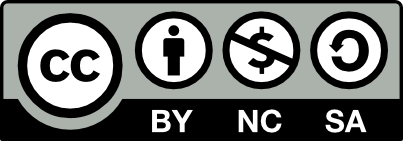Strengthening Resilience: Work Stress, Coping Strategies, and Health-Related Quality of Life (HRQoL)
Main Article Content
Abstract
Objective: To examine the interrelationships between perceived work stress, coping strategies, resilience, and health-related quality of life (HRQoL) among factory workers. It focused on understanding how coping mechanisms and psy-chological resilience influence stress and overall well-being in occupational settings.
Methodology: A cross-sectional quantitative design was used, involving 200 full-time employees from a master tile facto-ry. Participants aged 21–60 years with at least one year of employment were selected through purposive sampling. Data were collected via structured, face-to-face interviews incorporating the Perceived Stress Scale (PSS-10), Brief COPE Inventory, Connor-Davidson Resilience Scale (CD-RISC-10), and the SF-36 Health Survey. Descriptive statistics sum-marized the data, and Pearson correlation assessed relationships among variables. Ethical approval and verbal in-formed consent were secured.
Results: Findings revealed that 40.5% of participants experienced mild stress, 24.5% moderate, and 17% high stress. Adaptive coping strategies such as humor (23%), active coping (21%), and emotional support (20.5%) were most com-monly used. Resilience scores indicated that 64 participants had high resilience and 58 had moderate to high levels. HRQoL results showed that 61% had well to excellent quality of life, while 21.5% reported poor to very poor health. Cor-relation analysis demonstrated significant associations: stress negatively correlated with resilience (r = -0.45) and HRQoL (r = -0.52), while resilience positively correlated with HRQoL (r = 0.48). Coping strategies positively correlated with both resilience (r = 0.35) and HRQoL (r = 0.31).
Conclusion: Stress reduction and enhanced HRQoL are associated with greater resilience and adaptive coping mecha-nisms. These results lend credence to the necessity of workplace mental health programs that emphasize good coping and resilience-building.
Key words: Resilience, Health-related quality of life (HRQoL), Occupational health, Stress management, Adaptive cop-ing, Mental health.
Downloads
Article Details

This work is licensed under a Creative Commons Attribution-NonCommercial-NoDerivatives 4.0 International License.
Journal of Muhammad Medical College (J Muhammad Med Coll) belief that all researches are basically conducted for the benefit of humanity. Research is the product of an investment by society and consequently its fruits should be returned in a transparent fashion to all humankind without any discrimination.
Journal of Muhammad Medical College is an open access journal which means that all content is freely available without charge to users or / institution. When used non-commercially all users are allowed to read, download, copy, distribute, print, search, or link to full text articles in this journal without asking prior permission from the publisher or author as long as original author(s) are acknowledged.
Journal of Muhammad Medical College operate under Creative Common License CC-BY-SA that allow reproduction of articles free of charge, for non-commercial use only and with the appropriate citation information. All authors publishing with Journal of Muhammad Medical College accept these as the terms of publication.

This work is licensed under a Creative Commons Attribution-NonCommercial-ShareAlike 4.0 International License